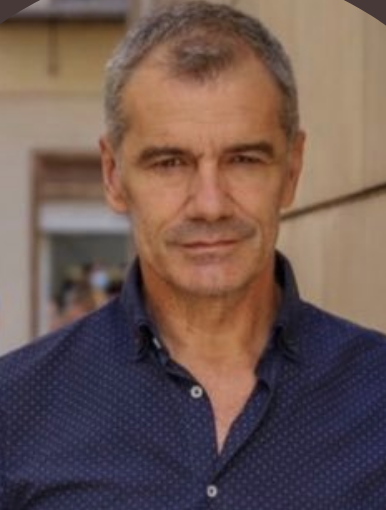Here he comes, loping over the hills, handsome and unstoppable, gliding across Spain’s political landscape, from somewhere near its centre towards an unspecified place somewhere on the right. Yes, Toni Cantó is Spain’s own Forrest Gump. A witness of calamity. Always on the move, forever jumping off the wagon of one crisis-ridden political party in order to leap onto another with better prospects.

What are we to make of this strange phenomenon? Cantó has hogged headlines recently after his enlistment as a candidate for the conservative Popular Party, the same party he berated for its corruption and stance against nationalism when he was in Ciudadanos. He had joined Ciudadanos after his previous political home, the UPyD, started to look unviable. And before that, remember, he began his political career in a party called Neighbours for Torrelodones, which was formed expressly to remove the corruption-plagued PP from office in that town.
The former actor’s gallop through four parties in 14 years has made him the target of plenty of vitriol and the butt of quite a few jokes. Madrid president Isabel Díaz Ayuso boasted that Spain owed her one for dragging Pablo Iglesias out of the government in order to run against her in May’s regional election. The rejoinder quip is that Spain owes her another favour for ensuring Cantó will stay out of our theatres for the next four years.
But beyond the gags, what does Cantó’s never-ending tour of political entities tell us, apart from reinforcing the theory that when someone says “I’m neither on the left or the right” they are most definitely on the right?
A recent interview with veteran journalist Iñaki Gabilondo seemed to touch obliquely, but squarely, on the Cantó hoopla. He described the 2008 economic crash in Spain as something that went beyond pure finance. “We didn’t enter an economic crisis, but rather a kind of brutal psycho-social stupor,” Gabilondo said, explaining how it fuelled a kind of turbo-charged political nuttiness in Spain. It’s arguably a trance that the country – or at least much of it – remains locked in today as political trench warfare and noismo dominate. I mention all this because the beginning of that crisis was precisely the time when Cantó was abandoning his b-list acting exploits to embark on a political career.
It is a career that has seen him develop from breath-of-fresh-air silver-fox outsider into a pseudo-centrist permatroll of the left; an anti-advert for social media, peddling half-truths and often no truths at all.
Members of Spain’s political class have faced a frequent criticism over the years: that they cling to their posts and their party lines because they are professional politicians with nowhere else to go but up the party pole. Cantó, however, wandered into the fray 14 years ago with his name recognition already established, from years playing David in the TV series 7 vidas and a role in an Almodóvar film. He represents a totally different problem, one that Americans became familiar with in 2016. It’s the idea of elected office as a bit of a lark, an effective way of expanding your Twitter follower base, or of reminding your agent that you still exist. This, arguably, is the more dangerous trend, because it appears to have no consequences for the protagonist, who can, at any time, slink back to his or her old job or simply seek out a new party.
Where will this particular political tourist’s travels end? On the far-right? Somewhere weird that lies beyond? Or, perhaps, back on the stage in a small theatre in Valencia playing Widow Twankey?
“I’m so happy to see you,” Cantó’s character, the transvestite Lola, says in a key scene in Almodóvar’s All About My Mother. “It’s just a shame it had to be like this.” Right now, many people will be saying the same of Cantó.
0 Comments